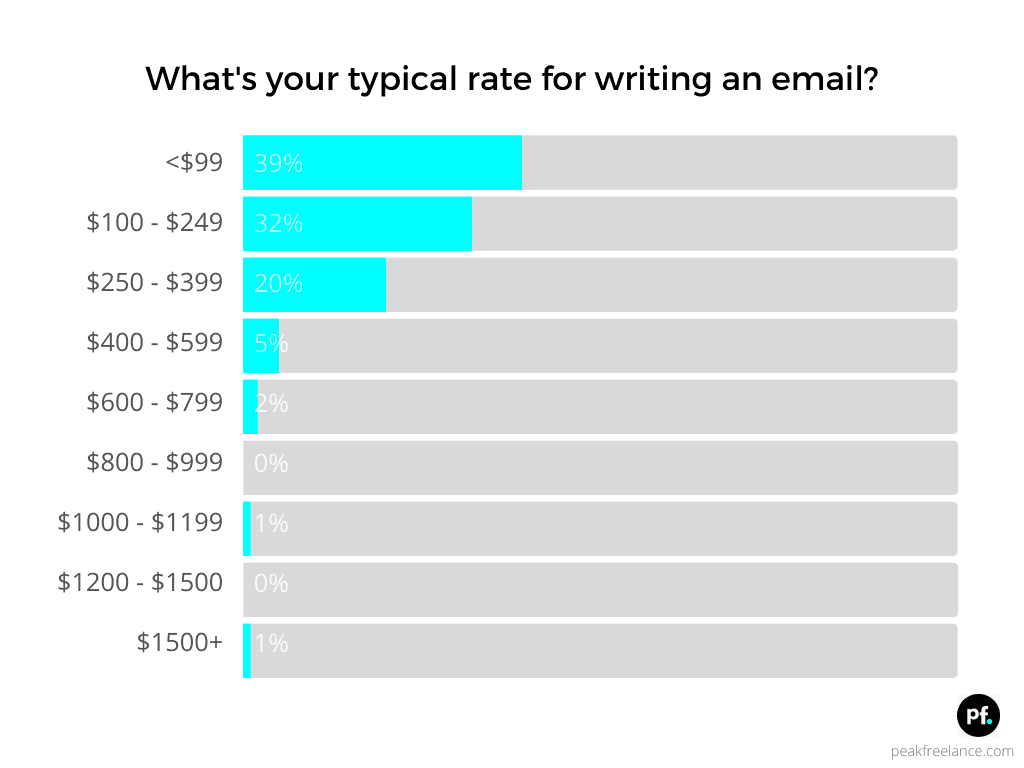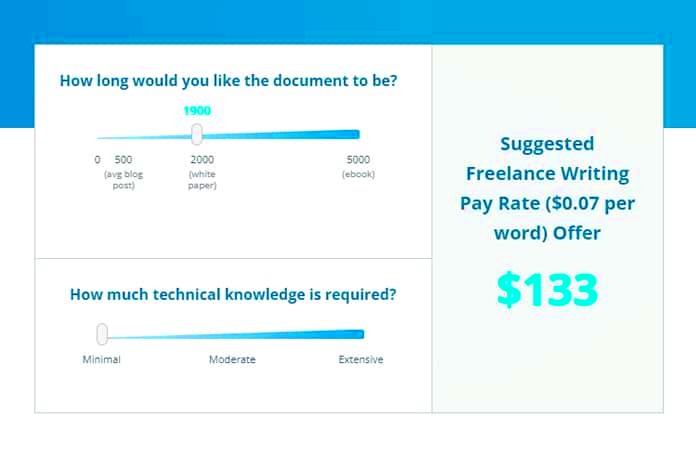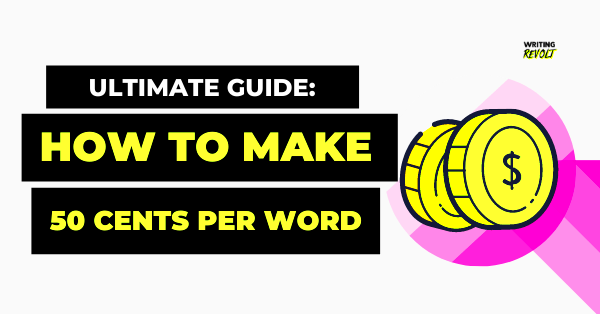Freelance writing is a flexible and rewarding career, but one of the key challenges writers face is setting the right rate for their work. Per word rates are a common pricing model used in the freelance writing industry. Understanding how to set your rate can make a huge difference in your earnings and help you stay competitive in the market. In this article, we'll explore what per word rates are, the factors that influence them, and how you can determine a fair rate for your writing services.
Factors Affecting Per Word Rates for Freelance Writing

When it comes to freelance writing, your per word rate isn't just pulled out of thin air. Several factors play a role in determining what rate you should charge. Here are some of the most common factors that affect your per word rate:
- Experience: More experienced writers can charge higher rates. They have built a reputation and refined their skills over time.
- Type of Writing: The complexity of the writing job matters. For example, technical writing or specialized subjects usually cost more than general blog posts.
- Turnaround Time: If a client needs work quickly, you can charge a higher rate for expedited delivery.
- Client Budget: Some clients may have bigger budgets, which allows for higher rates, while others may have stricter budgets that require more flexible pricing.
- Research Requirements: Writing that requires in-depth research, interviews, or fact-checking typically commands a higher rate due to the time and effort involved.
- Geographic Location: Rates can vary depending on where you're based, as cost of living can influence how much clients are willing to pay.
Also Read This: What Happens If Fiverr Doesn’t Deliver on Time?
How to Determine Your Per Word Rate as a Freelance Writer

Setting your per word rate can be tricky, especially if you're new to freelance writing. But by following a few simple steps, you can figure out what to charge. Here's how:
- Research Industry Standards: Start by finding out what other writers in your niche are charging. Rates can vary by industry, so knowing what's typical will give you a good baseline.
- Assess Your Skills: If you're just starting out, you may need to charge a lower rate to attract clients. But as you gain experience, your rates should increase to reflect your growing expertise.
- Consider Your Expenses: Think about the costs associated with freelancing, such as software, subscriptions, taxes, and office equipment. Your rate should cover these expenses while ensuring a profit.
- Set a Range: Rather than locking yourself into a fixed per word rate, set a range. This gives you flexibility depending on the project and client.
- Be Transparent: When quoting your rate, be clear with clients about what the rate covers—such as research, revisions, or additional services—to avoid misunderstandings.
As you gain more experience, you'll become more confident in setting your rates. Don't be afraid to adjust your per word rate as you grow in your career!
Also Read This: How to Market Your Fiverr Gig Effectively
Common Per Word Rates for Different Types of Writing

As a freelance writer, you'll quickly notice that the rates for different types of writing can vary quite a bit. Some genres or niches command higher fees due to the skill and expertise required. Here’s a breakdown of common per word rates based on different writing types:
| Writing Type | Typical Per Word Rate |
|---|---|
| Blog Posts and Articles | $0.05 - $0.20 |
| Copywriting (Ads, Website Content) | $0.10 - $1.00 |
| Technical Writing | $0.20 - $1.00+ |
| Ghostwriting | $0.15 - $0.50 |
| eBooks | $0.05 - $0.25 |
| Academic Writing | $0.10 - $0.50 |
It's important to note that these rates are just averages and can vary based on your experience, the client's budget, and the level of research required. For example, a complex technical writing project might cost more per word than a basic blog post, but generally, the more specialized your writing, the higher the rate you can command.
Also Read This: How to Increase Response Rate on Fiverr
Why Per Word Rates Matter for Freelance Writers

Per word rates are a standard pricing method that helps freelance writers charge appropriately for their work. But why do they matter? Let's break it down:
- Clarity and Simplicity: Per word rates provide a clear, straightforward pricing model. Clients can easily calculate the cost based on the number of words they need, and writers know exactly what they'll earn.
- Fair Compensation: With a per word rate, you are paid according to the volume of content you produce. This ensures that you're compensated fairly for your time and effort, especially for larger projects.
- Transparency: It avoids the confusion of hourly rates or project-based pricing, where the value of your time and effort may be less clear to both you and your clients.
- Incentive to Write Efficiently: Per word rates can encourage productivity. Since you're paid based on the number of words you write, you may find yourself focusing on getting your work done more efficiently.
- Attracts More Clients: Many clients are used to paying by the word, especially for content writing, so offering a per word rate may attract more clients who prefer a straightforward pricing model.
Ultimately, using per word rates makes the pricing process easier for both writers and clients. As a writer, you get paid fairly for the work you do, and clients have a clear understanding of what they're getting.
Also Read This: How to Get an Invoice from Fiverr
How to Improve Your Per Word Rate Over Time
As a freelance writer, it's important to keep improving your per word rate. The more experienced you become, the more you can charge. Here’s how to increase your rates over time:
- Build a Strong Portfolio: Clients are more likely to pay higher rates for high-quality work. Over time, focus on building a portfolio of your best work to demonstrate your skills.
- Specialize in a Niche: Writers who specialize in a particular niche can often charge higher rates. Whether it’s technology, finance, or health, becoming an expert in a niche can allow you to set higher rates.
- Gain Testimonials and Referrals: Happy clients are more likely to pay you well and recommend you to others. Ask for testimonials and referrals to show potential clients that you’re trusted and experienced.
- Upgrade Your Skills: The more skills you have—whether it's learning SEO, improving your writing speed, or mastering new software—the more valuable you become. Upgrading your skills can justify a rate increase.
- Increase Your Rates Gradually: Instead of dramatically raising your rates, consider gradually increasing them as you gain experience. This way, your current clients won’t be shocked, and you can start attracting higher-paying work.
- Be Confident in Your Value: As you become more experienced, don’t undervalue your work. Set your rates with confidence, knowing that your skills and expertise are worth it.
By focusing on these strategies, you can steadily improve your per word rate and increase your income as a freelance writer. Just remember, raising your rates is a gradual process, and with persistence and dedication, you'll see the results over time.
Also Read This: How to Build a Career as a Freelance Online Sales Consultant
Tips for Negotiating Per Word Rates with Clients
Negotiating your per word rate can feel intimidating, especially if you’re new to freelancing. However, it's a crucial skill that can help you earn what you deserve. Here are some practical tips to help you negotiate confidently and effectively:
- Know Your Worth: Before entering any negotiation, make sure you know your own value. Consider your experience, expertise, and the quality of your work. If you're a beginner, you might need to start lower, but always aim to gradually increase your rate.
- Understand the Client’s Budget: Asking your client about their budget upfront can give you a better idea of what they're willing to pay. This information helps you adjust your rate if necessary and avoid wasting time on unrealistic expectations.
- Offer Value, Not Just Words: If a client pushes back on your rate, emphasize the value you bring—such as quality, expertise in a niche, or fast turnaround times. Let them know that higher rates often correlate with better results.
- Be Prepared to Walk Away: Sometimes, a client’s budget may not align with your rate. Don’t be afraid to politely decline the project if it doesn’t meet your standards. It’s important to protect your worth and avoid undervaluing your services.
- Offer Tiered Pricing: If a client insists on a lower rate, consider offering a tiered pricing model. For example, you might charge less for basic blog posts and a higher rate for more in-depth articles or specialized content.
- Ask for Long-Term Work: If a client is hesitant about paying your rate, suggest a long-term relationship. Offering a discount for bulk work or regular projects can make your rate more appealing without reducing your overall earnings.
Remember, negotiation is a two-way street. Approach it with professionalism and confidence, and don't settle for less than you're worth.
Also Read This: What You Can Earn Working as a Freelancer
FAQ
What is a typical per word rate for freelance writing?
The typical per word rate for freelance writing varies widely based on factors like experience, writing type, and niche. For general content, rates can range from $0.05 to $0.20 per word, while specialized fields like technical writing can go as high as $1.00 per word or more.
How do I know if my per word rate is too low?
If you're struggling to make a sustainable income or find that clients are frequently negotiating your rate down, it might be time to increase your per word rate. Compare your rates with others in your niche, and assess whether your experience and expertise justify your pricing.
Can I increase my rate for existing clients?
Yes! You can increase your rate for existing clients, but it’s important to do so thoughtfully. Give them notice, explain why you’re raising your rates (e.g., increased expertise, inflation), and offer a continued relationship. It’s often easier to negotiate with long-term clients who value your work.
What should I do if a client refuses to pay my rate?
If a client refuses to pay your rate, you can politely stand firm, or suggest a compromise, such as offering a different type of project that fits within their budget. If the client still refuses, it’s best to part ways professionally and find clients who value your worth.
Conclusion
Setting and negotiating per word rates as a freelance writer is an essential part of building a sustainable and successful career. By understanding the factors that influence rates, improving your skills, and knowing how to negotiate effectively, you can ensure that you're compensated fairly for your work.
Remember, freelancing is about finding a balance between offering value to your clients and ensuring you’re paid what you’re worth. It’s a learning process, and with time, you’ll refine your skills and gain the confidence to command higher rates.
Don’t be afraid to revisit and adjust your rates as you gain more experience. Stay professional, confident, and proactive in your negotiations, and you’ll set yourself up for long-term success as a freelance writer.




